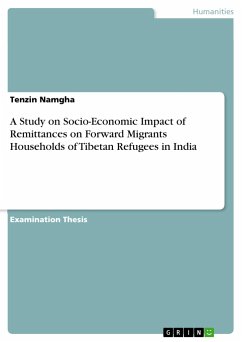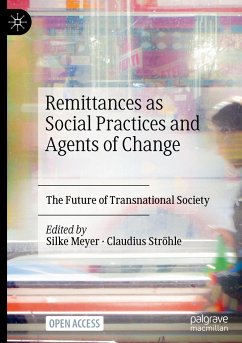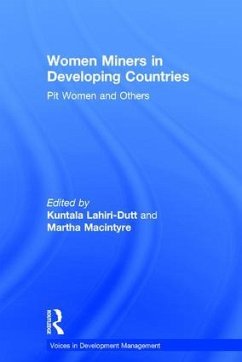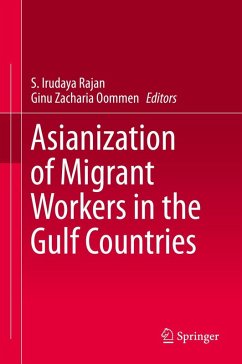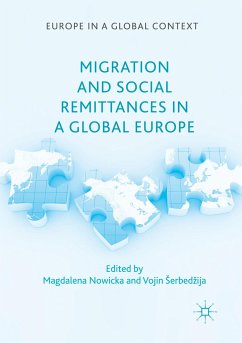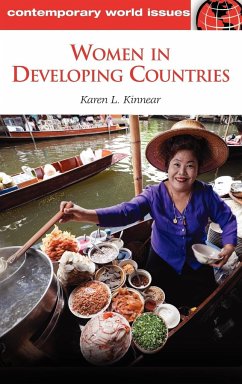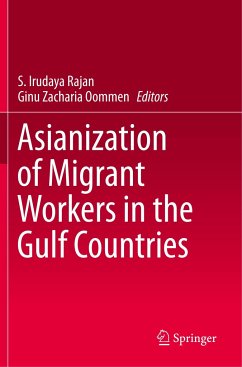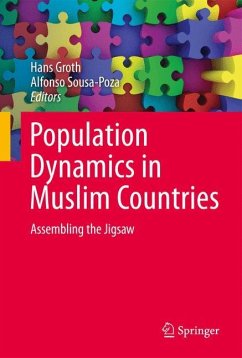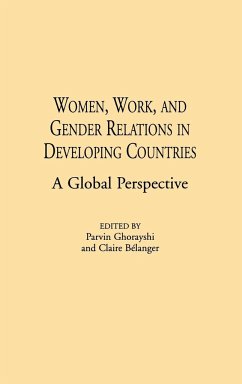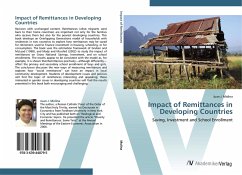
Impact of Remittances in Developing Countries
Saving, Investment and School Enrollment
Versandkostenfrei!
Versandfertig in 6-10 Tagen
32,99 €
inkl. MwSt.

PAYBACK Punkte
16 °P sammeln!
Revision with unchanged content. Remittances (what migrants send back to their home countries) are important not only for the families who receive them but also for the poorest developing countries. This book develops an Overlapping Generations model of households with residences in two countries to explore how remittances may be saved for retirement, used to finance investment in housing, schooling, or for consumption. The book uses the estimation framework of Gruben and McLeod (1998), and Mody and Murshid (2002) to study the impact of remittances on Gross National Savings, Investment, and on...
Revision with unchanged content. Remittances (what migrants send back to their home countries) are important not only for the families who receive them but also for the poorest developing countries. This book develops an Overlapping Generations model of households with residences in two countries to explore how remittances may be saved for retirement, used to finance investment in housing, schooling, or for consumption. The book uses the estimation framework of Gruben and McLeod (1998), and Mody and Murshid (2002) to study the impact of remittances on Gross National Savings, Investment, and on school enrollments. The results appear to be consistent with the model as, for example, it is shown that Remittances positively although differently affect the primary and secondary school enrollment of boys and girls. The conclusion discusses the new ways of measuring remittances and explores how social remittances can have an impact in local community development. Students of development issues and policies will find the topic of remittances interesting and appealing; those interested in gender issues in developing countries will find the results presented in this book both encouraging and challenging.



